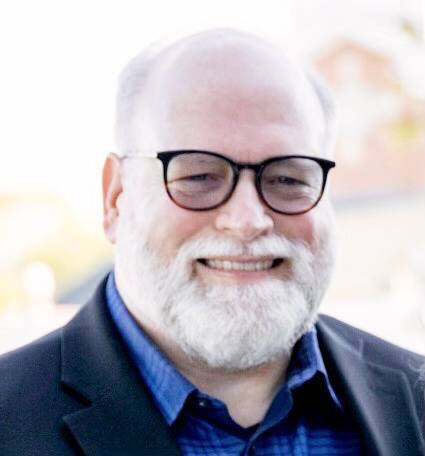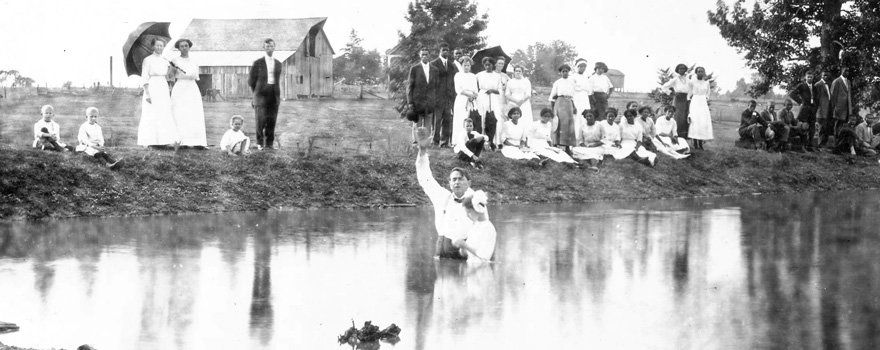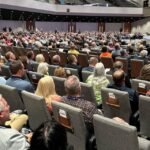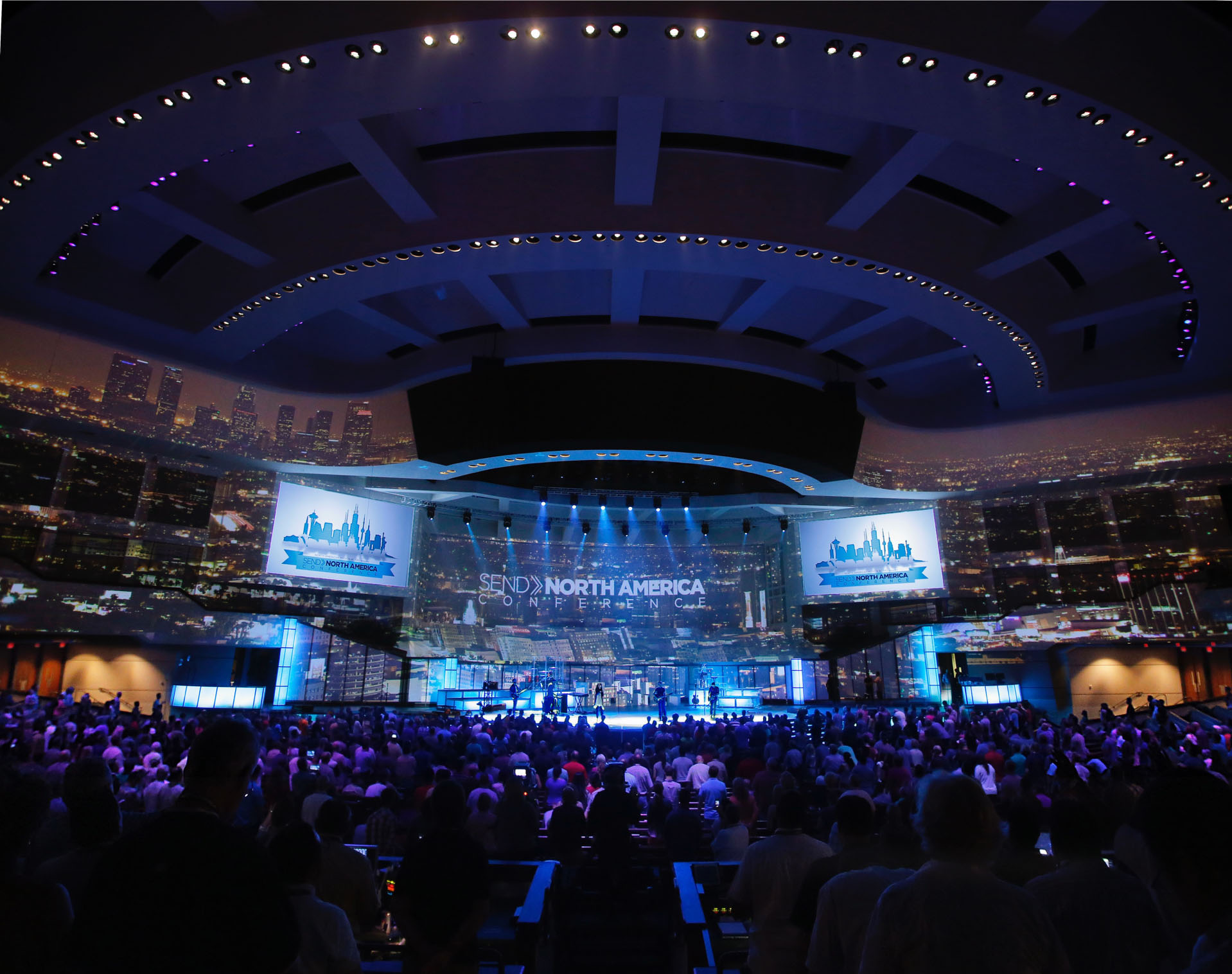

Editor’s note: This is the second in a three-part series of articles exploring the monumental contributions slaves and convict laborers made in Georgia Baptist history. Click here for Part 1 and Part 3.
Thousands of enslaved Black people were members of Georgia Baptist churches. They supported their churches through active membership, including voluntary gifts, and through the profits taken from their labor.
Willis Williams and Lucrecia “Creecy” Daniel were two such enslaved persons and were members of Shiloh Baptist Church in Greene County along with their master, William Nelson Williams. Willis and Creecy were married, and in 1861 they had twins, Adam and Eve. The Papers of Martin Luther King, Jr. chronicles the story of Adam “A.D.” Williams as he moved to Atlanta, some years later, becoming the pastor of Ebenezer Baptist Church, an early civil rights leader and the grandfather of Martin Luther King, Jr.
It is true that no one alive today participated in slavery or convict leasing that followed the end of the Civil War. It is also true that while they are not our fault, they are “our inheritance” as Douglas Blackmon noted in Slavery by Another Name. Their legacy continues to impact the state of Georgia and Georgia Baptist churches and ministries.
This year marks the bicentennial of the Georgia Baptist Convention (1822-2022), and it is a time to reflect on these 200 years of Georgia Baptist life and ministry. It is generally known that Baptists in Georgia enslaved people. In fact, the Georgia Baptist Convention has acknowledged and repented of racism and slavery with resolutions in 1963, 1970, 1977, 1994 and 2020.
What is not so well known is how actively and extensively Georgia Baptists were involved in slavery and convict leasing. These institutions played significant roles in the GBC during its first hundred years, and it would be impossible to retell faithfully the convention’s story without including details about the enslavement of these men, women, boys and girls. It is important, even necessary, to understand the GBC’s involvement with them so that Georgia Baptists can properly honor the notable contributions taken from the labor of enslaved people and leased convicts. To omit this part of Georgia Baptists’ story would also neglect the stories of thousands of enslaved and free Black Georgia Baptists and their faithfulness to the Lord.
One way to see the role slavery played in Georgia Baptist life is by looking at the presidents of the GBC. The 1830 and 1840 U.S. Federal Censuses and the 1850 and 1860 U.S. Federal Census Slave Schedules reveal that every GBC president through 1908 was a slaveholder. Jesse Mercer served as president from 1822 to 1841, followed by Billington M. Sanders, Thomas. H. Stokes, Patrick. H. Mell, David E. Butler, Archibald. J. Battle, James H. Kilpatrick and William. J. Northern. GBC presidents through 1871 enslaved an average of 29 people. When the GBC began hiring State Mission Secretaries in 1877, those serving through 1900 had also been slaveholders.
Slavery was the dominant issue leading to the founding of the Southern Baptist Convention in 1845. Robert G. Gardner noted in A Decade of Debate and Division: Georgia Baptists and the Formation of the Southern Baptist Convention that Georgia Baptists vigorously supported its founding, sending 48 percent (138 of 290) of the delegates that attended the meeting in Augusta, Ga. Samuel Boykin, editor of the Christian Index (1860-65, 1888) and Georgia Baptist historian, described the end of the cooperative missions partnership with Northern Baptists declaring, “[A]nti-slavery fanaticism among the Northern Baptists rendered a separation necessary, as well as expedient.”
The GBC sent delegates who, on average, enslaved significantly more people than did other Georgians. In fact, most Georgians were not slaveholders. Census data shows that just over one-third of white families enslaved people, and nearly half of all slaveholders enslaved fewer than 6 people. The number of Georgians who enslaved 20 or more people represented 15 percent of all slaveholders or less than 5 percent of all adult, white males in the state. Comparing that picture to Georgia’s SBC delegates reveals a stark contrast. Gardner concluded that 88 percent of Georgia delegates were slaveholders, and five enslaved at least 75 people. Georgia delegates enslaved an average of 24 people, about four times as many as found on the average Georgia farm.
The stories of Mercer University, a GBC entity until 2005, and Shorter University reveal a similar picture. The GBC founded Mercer in 1833 to train men for ministry. Summer Perritt’s ground-breaking research in her master’s dissertation, “Built on Their Backs: Slavery at Mercer University,” revealed that of Mercer’s 26 original donors, 20 donors enslaved 676 people, an average of 33 each. Every Mercer president was a slaveholder from its founding through 1889, and the Steward’s Books show the university leased enslaved people through 1864. When Shorter opened in 1873, several of its original trustees were slaveholders, and two of the four men who served as presidents through 1889 were slaveholders.
Boykin wrote in his History of the Baptist Denomination in Georgia that Iveson Lewis Brookes was one of “the most prominent and able men of all the Baptists who have lived and labored in Georgia.” Baptist luminary Basil Manly, Sr., encouraged Brookes to pursue ministry after graduating from college, and he recommended Baptist churches in Eatonton, Ga., and Edgefield, S.C. In letters archived at the Wilson Special Collections Library at The University of North Carolina at Chapel Hill, Manly wrote to Brookes describing the influential and prosperous members of these churches and two available daughters of “rich old Baptist” planters, one of whom Brookes married. Writing to his father after his marriage, Brookes said he hoped the Lord “would crown her with the blessing of salvation.”
Brookes served Baptist churches and ministries in Georgia and South Carolina and married three wealthy women, two of whom were widows. Historian Larry E. Tise’s research indicates that through these marriages, he acquired the resources of as many as five plantations and numerous enslaved people. The 1860 U.S. Federal Census and Slave Schedules show he claimed 66 enslaved people, likely from one plantation.
Other prominent Georgia Baptists also acquired prosperity through marriage. For example, Adiel Sherwood, Alfred Shorter, Jesse Mercer and C.D. Mallary married wealthy widows of prosperous slaveholders and plantation owners. Mercer and Shorter parlayed their marital windfalls into significant financial resources benefiting their namesake schools, Mercer University and Shorter University. Mercer also purchased the Christian Index utilizing his wife’s resources and relocated it to Georgia.
A more brutal form of slavery emerged after the Civil War that provided cheap labor across Georgia and other Southern states. Blackmon, Alex Lichtenstein, Matthew J. Mancini and others have written that leased convicts were mostly Black men and women. While exact numbers are difficult to confirm, more than 800,000 Black men were forced into convict leasing across the South. These convicts, in most cases, had committed no substantive crimes. Rather, they were frequently convicted of violating Black Code laws such as vagrancy for not being able to prove employment or property ownership. Brutal punishment, filthy living conditions, starvation, disease, sexual abuse and death were common and resulted in multiple investigations from 1868 to 1908. The legislature ended convict leasing in 1909.
James Monroe Smith’s biographer, E. Merton Coulter, described Smith as a Georgia Baptist financier and benefactor who ran convict leasing camps in 12 counties from which he subleased hundreds of convicts. His plantation was Georgia’s largest, spanning 30 miles, and hundreds of leased convicts worked his property. He also held former convicts to work on his plantation. John Hill, the nephew of a Black preacher on Smith’s property, painfully described the punishment of the whipping boss: “It wuz awful to hear ‘em hollerin’ an’ beggin’ for mussy. If they hollered ‘Lord have mussy!’ Marse Jim didn’t hear ‘em, but if dey cried, ‘Marse Jim have mussy!’ den he made ‘em stop de beatin’. He say, ‘De Lord rule Heb’en, but Jim Smith ruled de earth.’”
Joseph E. Brown, a prominent Georgia Baptist and former governor of Georgia, also leased convicts, and Lichtenstein and Mancini devoted pages to Brown in their works on convict leasing. Some 550 leased convicts worked Brown’s railroads and mines at his death in 1894. Although he denied allegations of poor conditions, one investigation concluded, “If there is a hell on earth, it is the Dale Coal Mines, where the poor unfortunate creatures are so inhumanely treated.”
Other Georgia Baptists were connected to convict leasing. Alfred Shorter and his business partner sought a lucrative contract to lease convicts from the State in 1872. Henry H. Tucker, an influential Georgia Baptist and editor of the Christian Index (1866, 1878-82, 1885), supported convict leasing even though public sentiment opposed it, and abuse was well known. In 1879 he offered a glowing affirmation in the Christian Index of Brown’s use of convict labor at the Dale Coal Mines. A few years later in 1886, he praised convict leasing in a repulsive speech to the National Prison Congress held in Atlanta. After stating that leased convicts were “the best protected citizens of the state,” he told the congress, “There is a psychological repulsion between the races” that is “horrible” and a “dreadful grief” to the “Caucasian” that the “African does not feel.”
The GBC and its leaders saw significant advances of the Gospel during their first hundred years. At the same time, slavery and convict leasing were inseparable from Georgia Baptist life with leadership participating directly in them and all the GBC benefiting financially from them.
How would Jesus have His followers respond today? How would Jesus have Georgia Baptists respond during their bicentennial?
The GBC’s 1994 resolution on slavery and racial reconciliation still speaks with timeless hope and provides a humble response to these questions. The GBC committed “to acknowledge our heritage of sin in this area and ask forgiveness of God and of our black brothers and sisters in Christ, knowing that our repentance and confession of sin is mandated by Christ’s command and necessary for forgiveness and reconciliation to take place.”
In 1995 the Southern Baptist Convention met in Atlanta for its 150th anniversary and adopted a similar resolution acknowledging participation in racism and slavery. Southern Baptists resolved to “lament and repudiate historic acts of evil such as slavery from which we continue to reap a bitter harvest, and we recognize that the racism which yet plagues our culture today is inextricably tied to the past.” Lament and repudiation were righteous responses at the SBC’s 150th anniversary. As Georgia Baptists celebrate 200 years of Gospel advance, lament and repudiation of this heritage of sin would be righteous responses during the bicentennial convention.



















